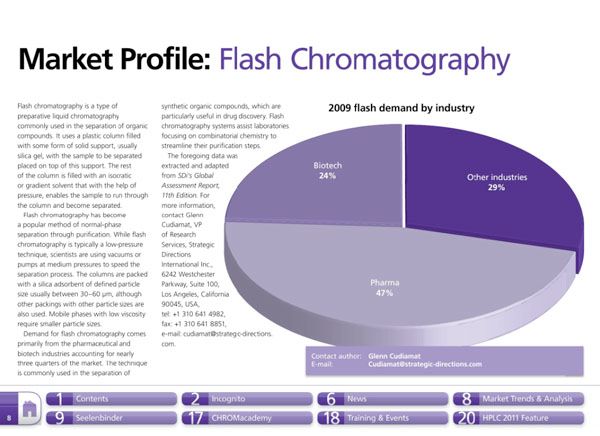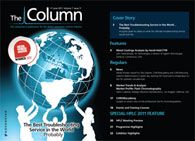Market Profile: Flash Chromatography
Flash chromatography is a type of preparative liquid chromatography commonly used in the separation of organic compounds.
Flash chromatography is a type of preparative liquid chromatography commonly used in the separation of organic compounds. It uses a plastic column filled with some form of solid support, usually silica gel, with the sample to be separated placed on top of this support. The rest of the column is filled with an isocratic or gradient solvent that with the help of pressure, enables the sample to run through the column and become separated.
Recent Videos
FeMS Empowerment Award Winner Josephine Ouma Discusses Women's History Month and Her Future
FeMS Empowerment Award Winner Josephine Ouma Discusses the Society's Impact On Her Career
FeMS Empowerment Award Winner Josephine Ouma Discusses Her Current Research in MS
LCGC Award Winners Share Advice for the Next Generation
Christopher Pohl Speaks to the Next Generation of Aspiring Separation Scientists
Christopher Pohl on the Most Impactful Moments in Chromatography
Jim Grinias Reflects on EAS and Emerging Chromatography Trends for 2025
An Interview with Martin Medal Winner Fabrice Gritti
ISC 2024: An Interview with Alexandre Goyon
Automated LC Method Development: An HTC-18 Interview with Bob Pirok
Related Content

.png&w=3840&q=75)

.png&w=3840&q=75)



.png&w=3840&q=75)



.png&w=3840&q=75)














